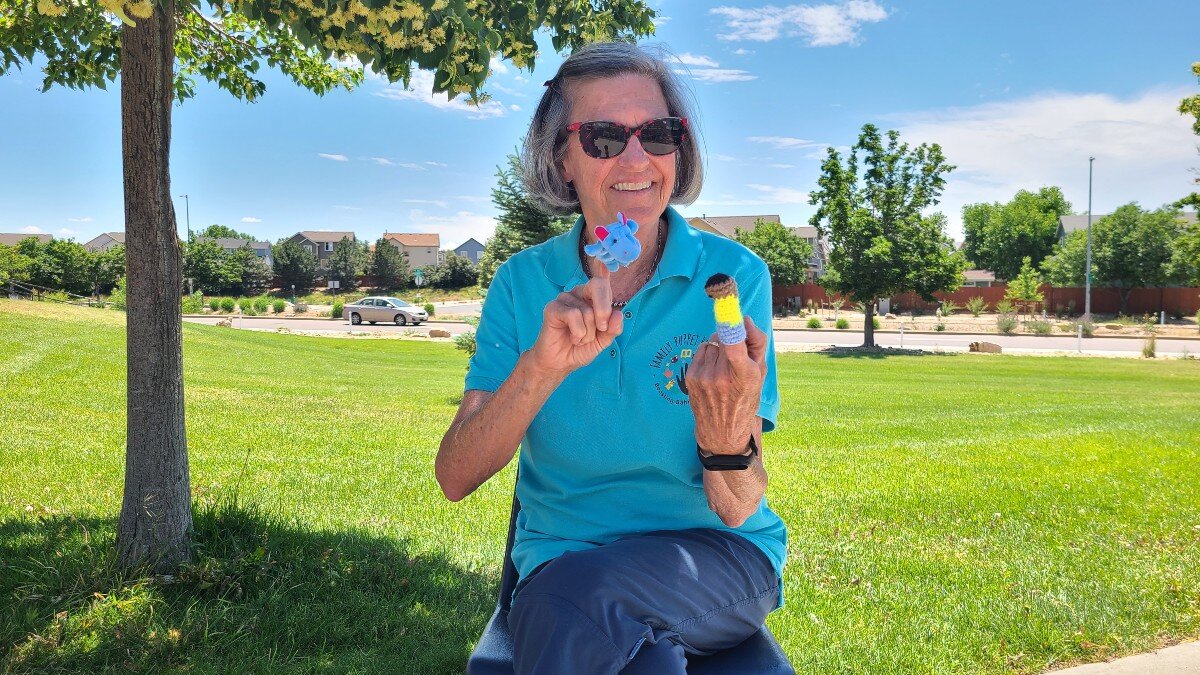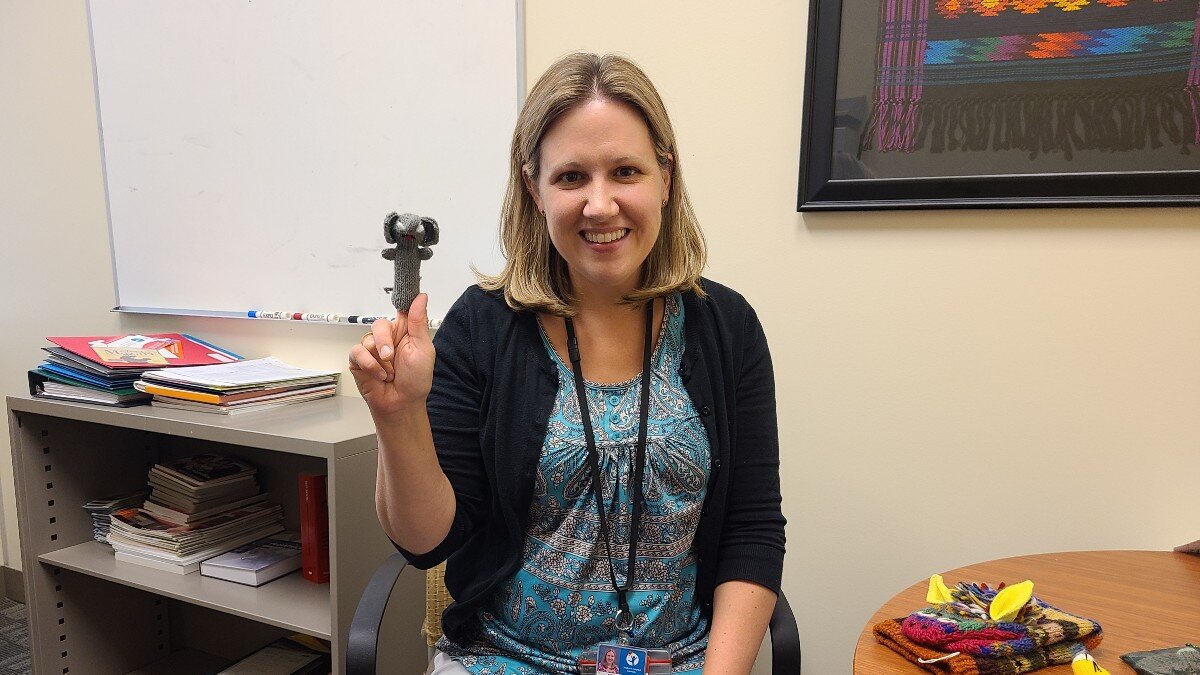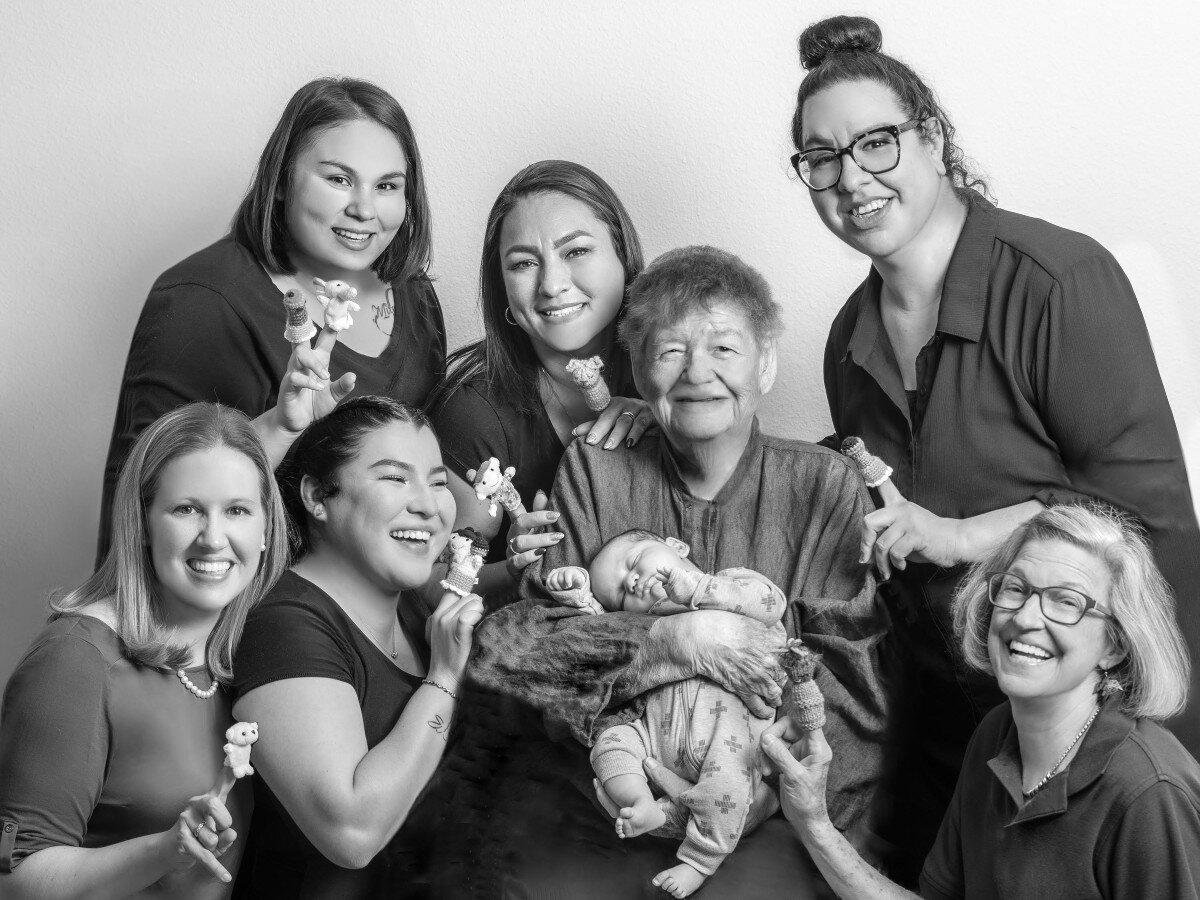How finger puppets can help promote early language development in babies

DENVER — Mary Ann Bash, the creator of Parents for Parity and the Each One, Teach One: No More Gap Program has worked with struggling students at high-needs schools for many years.
“There will be as much as a 30-million-word difference in terms of how much language a child has heard by age three,” Bash said. “I don't want any kid to struggle in school simply because the family just didn't know how important, how valuable talking with their children is before they enter school.”

Bash explained that she sees how the 30-million-word gap can disadvantage children when they come to school, particularly because school can be highly verbally based.
According to Dr. Gretchen Domek, a pediatrician, associate professor of Pediatrics at the University of Colorado School of Medicine and senior investigator for the Center for Global Health at the Colorado School of Public Health, talking with babies as young as two months old can set the stage for future vocabulary growth, school readiness and academic success.
Consider a diaper change, Domek said: If a parent were to say 50 words during each diaper change, and they do five diaper changes a day, their baby could hear around 273,750 words after three years. And if a parent were to speak while they fed, dressed, bathed and played with their baby, that baby would be exposed to millions of words.
But for many parents, talking to a baby that won’t be able to respond for several years can be difficult, Domek said.
Her suggestion? Parents can use finger puppets to support early language promotion.
Dr. Bonnie Camp, professor emeritus of Pediatrics at the University of Colorado School of Medicine, began using finger puppets in the 1970s as a way to help moms interact with their babies.
40 years later, the Center for Global Health was starting a program on early childhood health and development in Guatemala. Domek and Camp worked together to start a program from introducing mothers of infants to different developmental materials. For babies that were two months old, that material was a puppet.

About five years ago, Domek explained, they decided to study the use of finger puppets in a more formal way. They started two pilot studies in Colorado. Domek and Camp gave the puppet to parents of two-month-old and six-month-old babies and followed those patients using their developmental screenings until they were 36 months old.
“At 12 months, if you got the puppet at two and six months, you had better scores on your cognitive home environment, you had better pre-verbal scores, and you had better early receptive language scores,” Domek said. “And if you got the puppet at two months, your social emotional score was better at 36 months.”
Bash, who has worked with Camp for years, was introduced to Domek during Camp’s 90th birthday. They began talking about how they could apply Domek and Camp’s research in the community.

In 2021, Bash and Domek applied for a grant to develop a team of parents that learned ways to use the finger puppets with their babies and now reach out to other parents in the community to teach them as well.
“They learn from us. And then they reach out to their neighbors, their extended family, their colleagues at work that have these babies. And they are the ones that then allow us to expand the reach of our work,” Bash said.
The team, fluent in English and Spanish, reaches out to parents in the community and talks to them about the benefits of using finger puppets with their babies. They provide bilingual activity sheets that help give parents ideas about how to use the puppets. Team members also have parents complete satisfaction interviews that Domek can use in the clinic to keep track of assessment measures.
Though the project is in its early stages, Bash said that the feedback has been overwhelmingly positive so far. Using the finger puppets allowed parents to become more comfortable singing, telling jokes, changing their voices and pretending to be different characters with their babies. Over time, some parents stopped using finger puppets altogether because they were comfortable enough to talk to their babies without the puppets.
“The baby isn’t really caring so much about the puppet, although the color and the movement attracts their attention,” Bash said. “It’s the parent’s voice. That’s what they love.”
Theresa Ho is the RMPBS Kids digital content producer. You can reach her at theresaho@rmpbs.org.